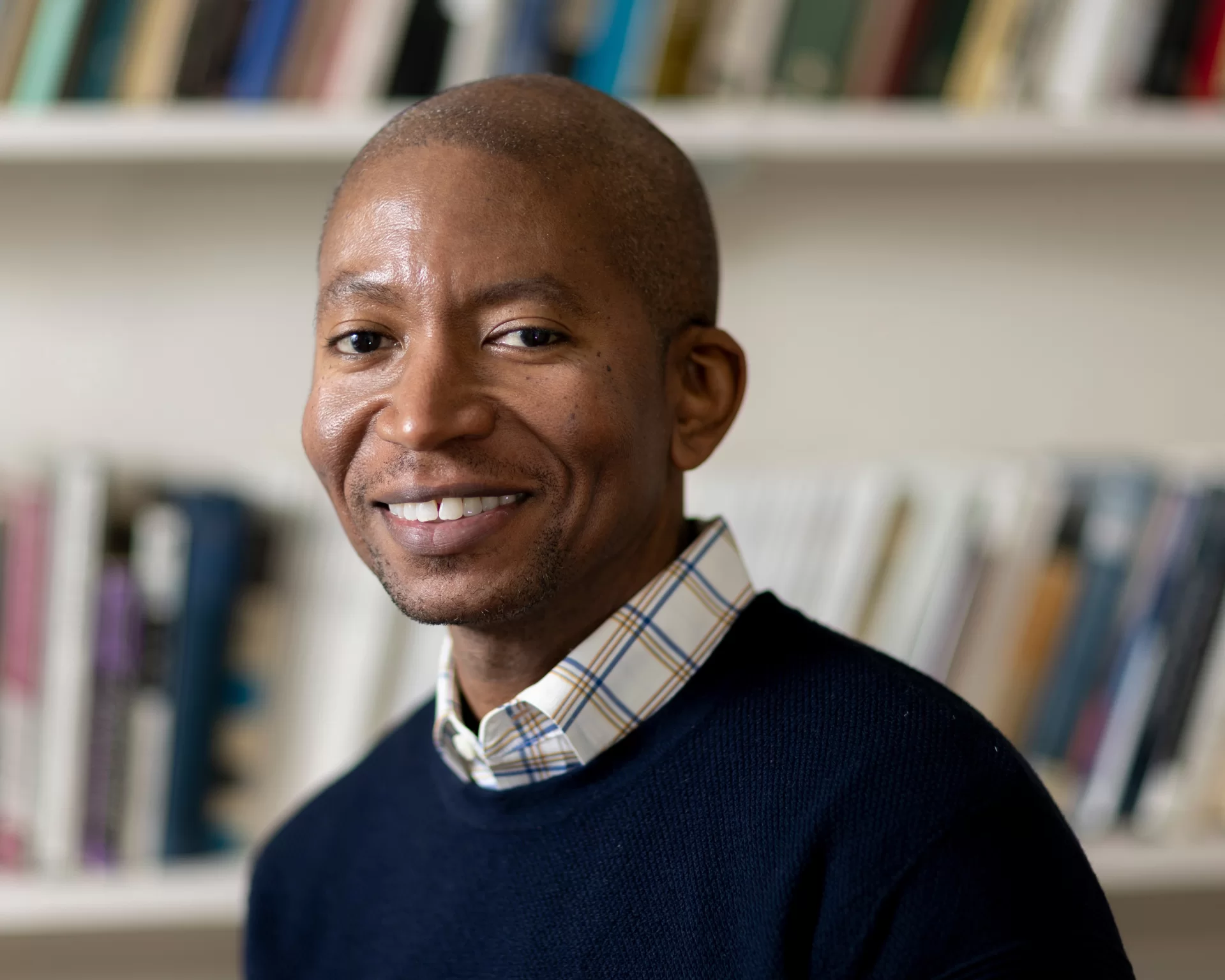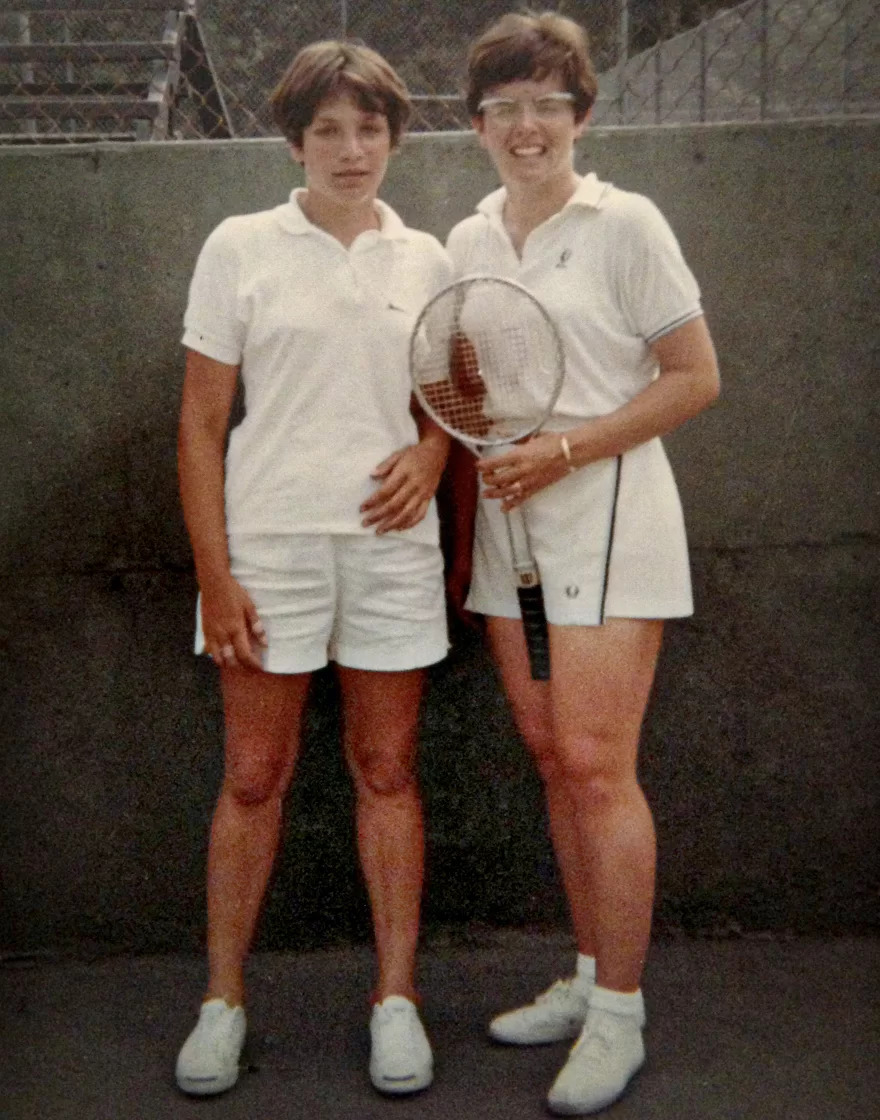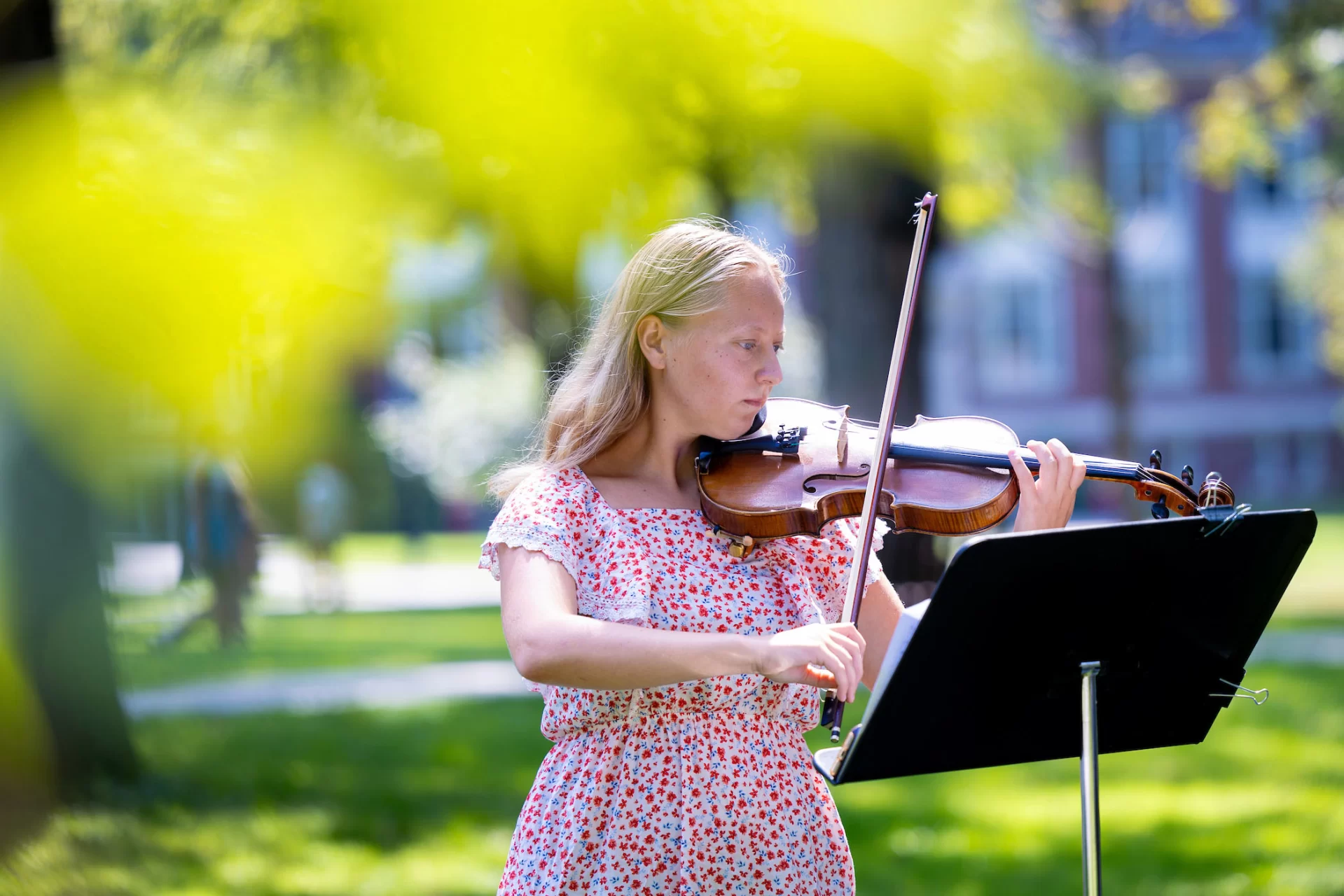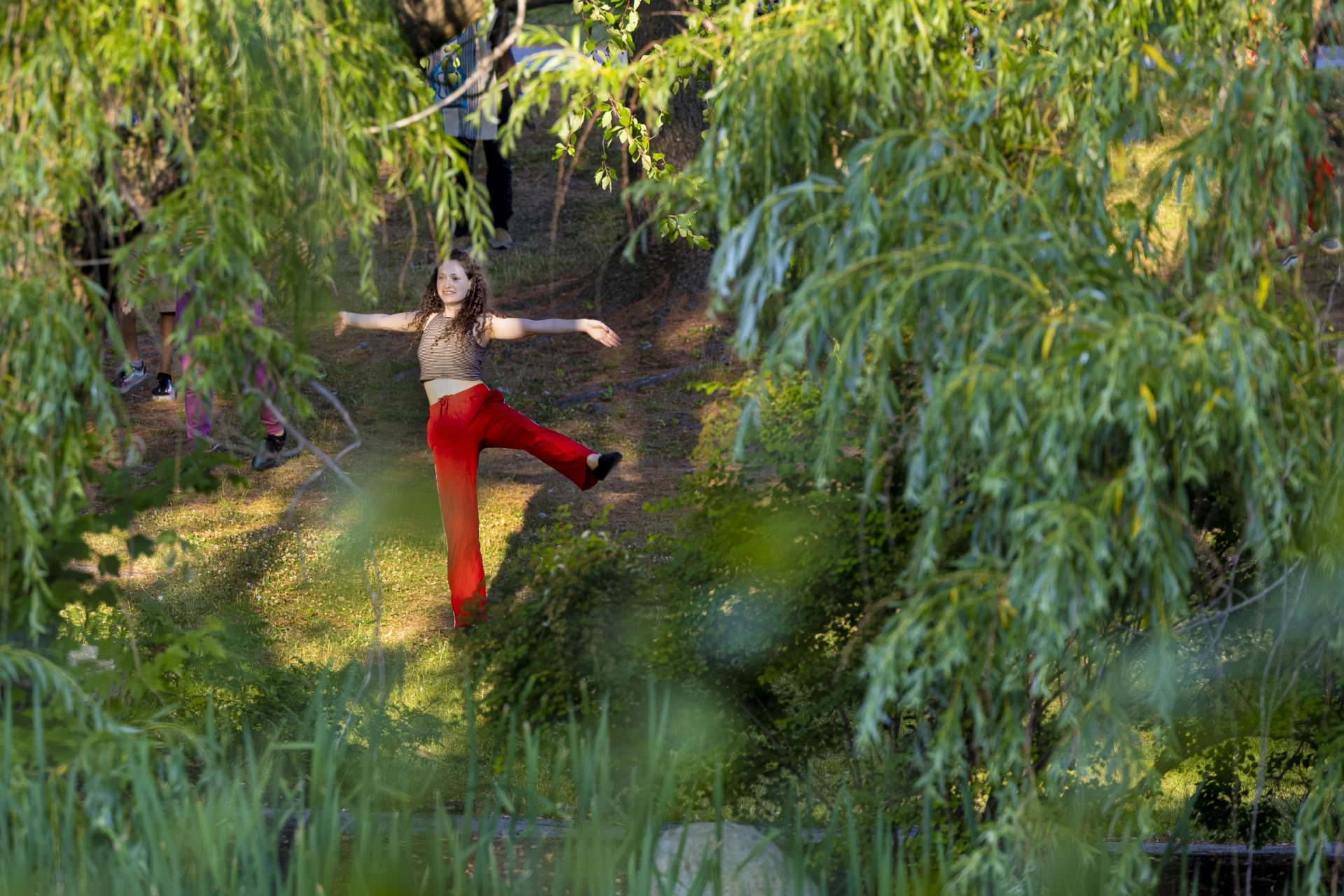
A selection of recent mentions of Bates and Bates people in the news.
Myronn Hardy
‘I see something I can’t shake’ — The Rumpus
“With the graceful step of a spy and the determined aim of a hunter, Hardy delivers pieces of his heart in each poem,” writes Janet Rodriguez of the literary journal The Rumpus, describing Assistant Professor of English Myronn Hardy new collection of poetry, Aurora Americana (Princeton University Press), coming out on Oct. 10, 2023.

“For me, poems begin as images,” Hardy tells Rodriguez in the Q&A story. “I see something I can’t shake. The image remains in my mind. I dream about it. I wait for that particular image to morph, a subtle change in color or a repositioning. When that happens, I know I’m in the process and nearing the page.”
Phyllis Graber Jensen
The forgotten teenage trailblazer of women’s tennis — The New York Times
The New York Times tells a story about a girl, Phyllis Graber — now Phyllis Graber Jensen, director of photography and video at Bates — growing up in Kew Gardens, Queens, who wanted to play high school tennis.
Her school, Jamaica High School, had no girls team, so she asked to play on the boys team.
“Against the vogue for male chauvinism, both the coach, who recognized her talent, and the team members themselves said they would welcome her,” writes Ginia Bellafante in her Big City column. But the city Board of Education said “no way.”

“So at 16, Ms. Graber filed what turned out to be an enormously influential complaint with the New York City Commission on Human Rights.” She won the day, gaining permission to compete on her high school team in 1971.
“I had a gradual awakening based on what I encountered in school, in Ms. magazine, in what was happening in the world around me,” Graber Jensen tells Bellafante. “If I had been born 10 years earlier, I would have faced a much grimmer experience. I think my parents were exceptional in how they encouraged me.”
For more on this story, listen to this Bates Bobcast interview with Graber Jensen from 2021.
Stephanie Kelley-Romano
From ‘data dumping’ to ‘webbing’: how Robert F. Kennedy Jr. sells misleading ideas — The New York Times
A New York Times story turns to Professor of Rhetoric, Film, and Screen Studies to explain Robert F. Kennedy Jr.’s use of logical leaps and rhetorical devices to create false or misleading anti-vaccine messages in his campaign for the Democratic presidential nomination.
Kennedy tends to “dump a billion studies, footnotes and pieces of evidence in front of us,” Kelley-Romano tells reporter Stuart A. Thompson. “People aren’t fact-checking it, and so it feels true.”
As an adept conspiracy theorist, Kennedy knows how to wrap a “grain of truth” into his claims, says Kelley-Romano. “But it’s wrapped up in speculation, conjecture and hyperbole,” she explains. “It’s incredibly pernicious.”
Tyler Harper
The moral theater of social justice parenting — The New York Times
In an opinion piece for The New York Times, Tyler Harper, an assistant professor of environmental studies, criticizes a parenting trend he calls “social justice parenting,” which he describes as “parenting philosophies that see children as dangerously permeable to prejudice and that insist that antiracism counterprogramming must begin in the cradle.”
Such parenting philosophies tend to be aimed at progressive whites, says Harper, who is Black, and while they do have evidence-based foundations, “as with other offshoots of antiracism, it has increasingly devolved into a self-help program for wealthy white progressives.
“The discourse has become a grab bag — and, one suspects, a cash grab — where serious research mingles with New Age sloganeering and self-care practices designed to soothe the troubled souls of guilty liberals.”
Maple Buescher ’25
I don’t believe in God. But I found something powerful in a church that kept me coming back — Cleveland.com
Maple Buescher ‘25 of Cleveland Heights, Ohio, who writes a regular column for The Plain Dealer and its online publication, Cleveland.com, offers thoughts about her summer spent working on a Maine island in a one-room library, while a friend served as the organist for the island’s church.
Bueshcer spent time in the church, listening to her friend perform and attending services. The experience was deeply moving, she writes.

“I am not Christian, and I do not believe in any higher power. So why was I so deeply moved by these religious services? The answer, I think, lies in the fact that the Bible and the hymnal were written by humans, and at the very heart of all of them are human reflections on how to live a good life.”
Ken Kobori ’02
Two minutes with Ken Kobori, CEO of SURF Music — Muse by Clio
The entertainment and pop culture news site Muse by Clio offers a Q&A with Ken Kobori ‘02, who, as founder and CEO of SURF Music, has guided the careers of Japanese, Korean, and American artists.
Kobori says he is proud of a recent collaboration with Earth Wind & Fire and Little Glee Monster, which he composed and produced. And he shares his earliest musical memory: “Hearing Oscar Peterson’s ‘You Look Good to Me‘ on a JBL record player from the ’70s. I still have the same JBL system at my house in Tokyo today.”
Ross Brockman ’11
An intensive A-to-Z guide to apples, New England’s most iconic fall fruit — Boston Magazine
In Boston Magazine’s alphabetical guide to New England apples, Downeast Cider House earns the letter B, “for Business success.”

Referring to co-founder and CEO Ross Brockman ’11, writer Wyndham Lewis notes that “most dudes who dabble in making alcohol in their dorm room don’t dream of scaling up to selling a million and a half cases of their product per year. But that’s exactly the path that Ross Brockman took.”
In 2020, the Boston Business Journal named Downeast Cider one of the 50 fastest-growing private companies in Massachusetts.
Based in East Boston, the business now runs six 16,000-gallon custom-built fermenting tanks, alongside 15 smaller fermenters, producing cider 24 hours a day with 100 employees working three shifts, says Lewis.
Roy Mathews ’21
Guyana’s oil boom captures attention of global energy powers — The National Interest
Writing for The National Interest, an international relations magazine published by the Center for the National Interest, Roy Mathews ‘21 argues that the U.S. should counter Chinese influence in oil-rich Guyana.
“To counter this authoritarian dominance, the U.S. government must build stronger ties with Guyana by ensuring that U.S. energy companies invest the profits gained from this oil boom into the nation’s economy, public education, and standard of living.”




